Lowering the speed limit from 30mph to 20mph on residential roads is the latest Welsh government law change that has grabbed headlines.
A number of other law changes have previously raised eyebrows – some of which still divide opinion.
Free prescriptions for all
Free prescriptions were introduced in Wales in 2007 after evidence found that some patients with long-term health conditions could not afford all of their medication.
Wales was the first UK nation to abolish prescription charges, and Welsh ministers have subsequently said the move has kept people out of hospital and cut overall costs.
It has not been raised as a political issue for some time, despite the Welsh Conservatives previously arguing that 40% of tax-payers should pay for their prescriptions.
Even at a time when the Welsh government is looking to make £900m of savings, to change this flagship policy – which costs it almost £85m a year – would cross quite a line.
Carrier bag charge
Wales was the first part of the UK to bring in a 5p charge for single-use plastic bags in 2011, and now intends to ban them altogether.
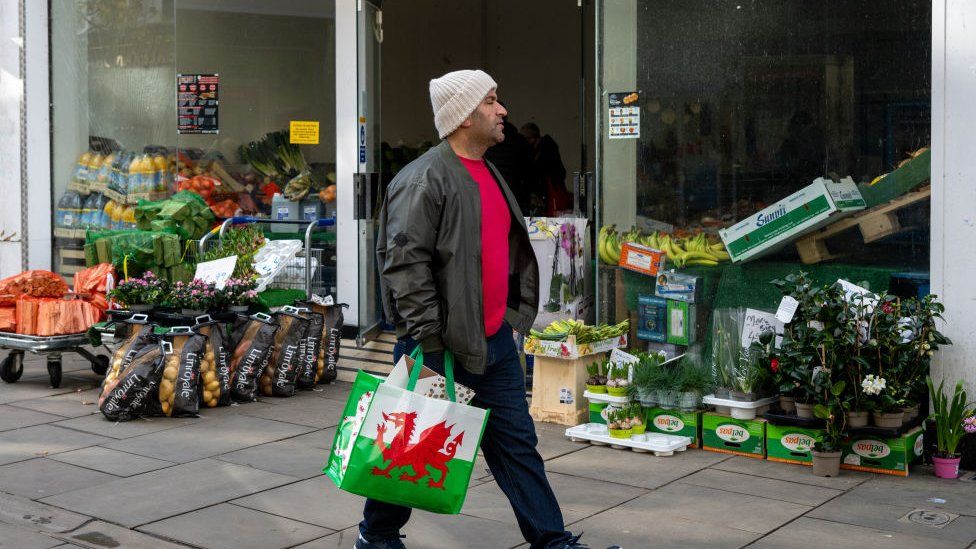
A review in 2015 found the use of bags had dropped by 71%, with the multiple 5p payments raising up to £22m for charity.
But the Welsh are now playing plastic catch-up with England and Scotland after straws, stirrers and cotton buds were banned in both nations – but not Wales.
Meal deal restrictions
Many politicians instinctively avoid getting their teeth into voters’ diets and the Welsh government’s plans to restrict what is sold in meal deals did not go down well – at least with a lunchtime crowd in Cardiff.
Meal deals with a high fat, sugar or salt content will be restricted under plans to tackle obesity and diabetes.
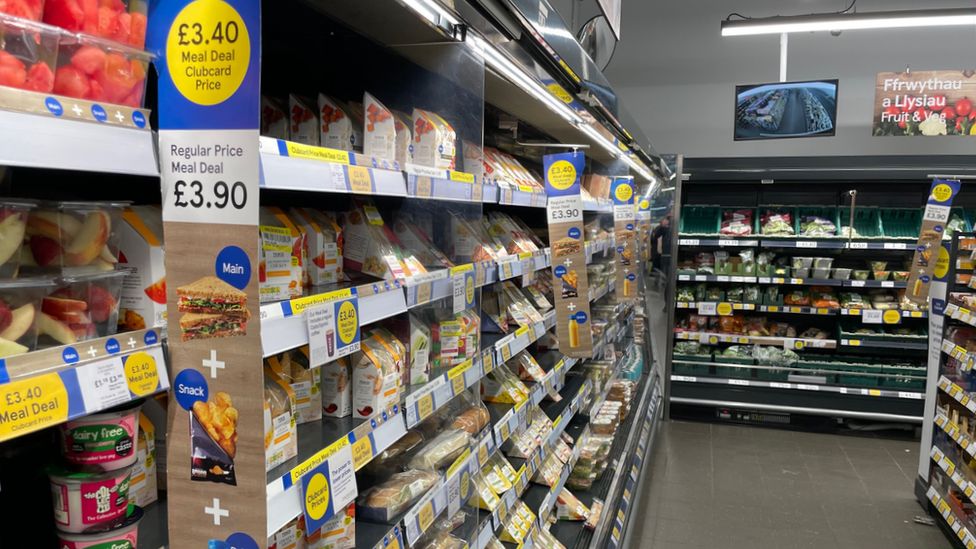
Some accused the Welsh government of being a “nanny state” while an eating disorder group warned that “demonising” certain foods could have unintended consequences for people with conditions like bulimia and anorexia.
The changes will become law in 2025.
Future Generations act
Wales became the first country in the world to introduce a Future Generations Act in 2015, which places a legal duty on public bodies to take the needs of future generations into account.
It has won praise from the United Nations and a similar plan for England is slowly making its way through the House of Commons.
In Australia, former Wallabies rugby captain-turned-senator David Pocock is trying to bring in a similar law.
Tighter Covid rules
There was no masking the controversy around some of Wales’ Covid regulations during the pandemic.
On the whole they tended to be stricter than in England, but not initially on face covering rules which then ended up in place for two months longer than over the border.
There was also the five-mile rule which imposed tight restrictions on how far people could travel, a law that was criticised as cruel by Conservatives.
During a firebreak lockdown in October 2020, more than 60,000 people signed a petition calling for baby clothes to be taken off a list of non-essential items that supermarkets were banned from selling. The Welsh government relented and they went back on sale.
Free school meals
Food again… and the Welsh government won praise from the likes of footballer and campaigner Marcus Rashford for its policy of free school meals for eligible children during the pandemic.

It was a scheme then extended to cover school holidays, which controversially came to an end earlier this year because of a lack of funds.
That has led to calls from some Labour backbenchers for a more targeted approach and the end to universal free school meals for primary school pupils during term time, a policy which is part of the Welsh Labour government’s co-operation agreement with Plaid Cymru.
New road building ban
There were collective honks on the horns of despair from many drivers after the Welsh government scrapped a much-anticipated £1.6bn relief road on the M4 around Newport in 2019.
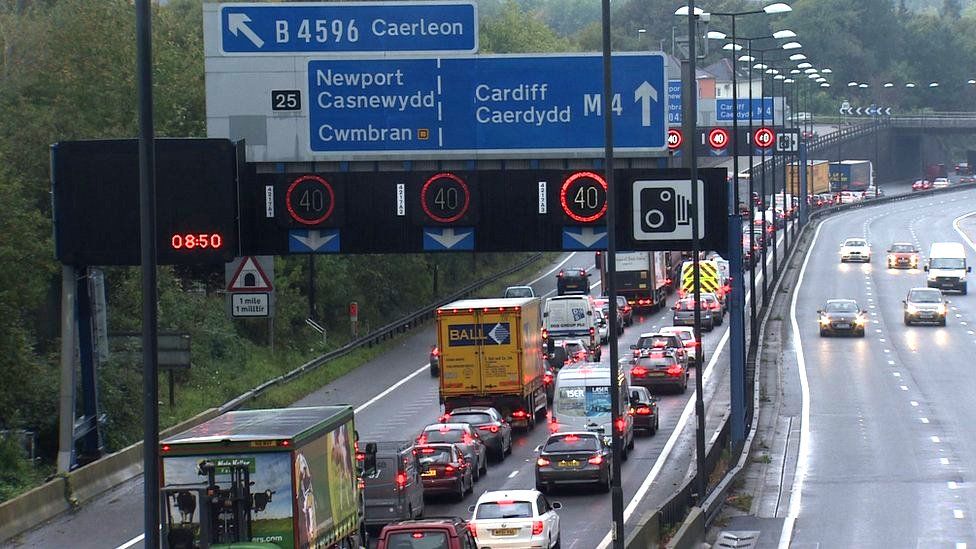
The Welsh government said building new roads was not the answer in a time of climate change and instead promised greater investment in public transport.
Earlier this year, ministers in Cardiff went even further by putting the brakes on nearly all future road building schemes in Wales.
Second home clampdown
Since April, Welsh councils have been able to charge a 300% council tax premium on second homes.
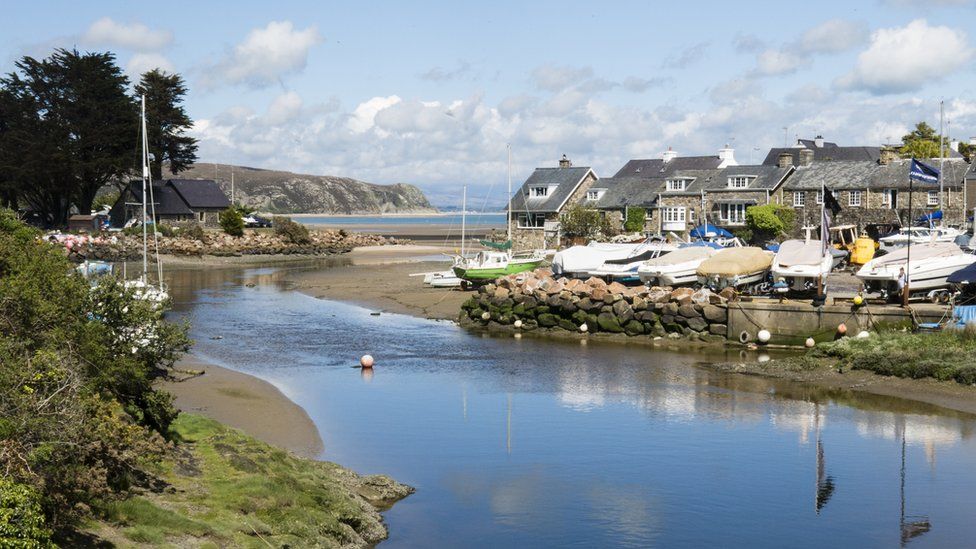
The idea is to try to stop local people from being priced out of the property market – especially in tourist hotspots.
But some holiday-let companies have warned that the hotspots could turn into ghost towns, with a devastating blow to the economy if owners decide to sell up and tourists do not come.
Tourism tax
The tourism industry reacted with alarm in March when the Welsh government decided to press ahead with plans for a tax on overnight stays.

Tourism taxes are common in many parts of the world, but businesses here worry it could put visitors off from coming in the first place.
Although the rate has not been set yet, the funds would be used to improve local facilities.
It is certainly a talking point and a consultation on the plans has had over 1,000 responses.
Organ donation consent
Wales changed the law on organ donation in 2015. It means rather than having to register as a donor, you are presumed to have given consent unless you’re under 18, in an excluded group or have actively opted out.
Welsh government figures from just before the pandemic suggested an 18% increase in donations after death in the first four years after the change.
Source : bbc








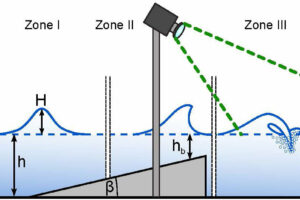


Add Comment